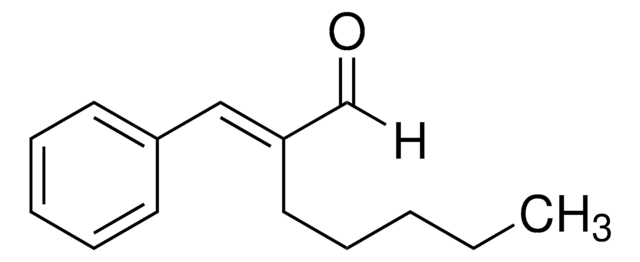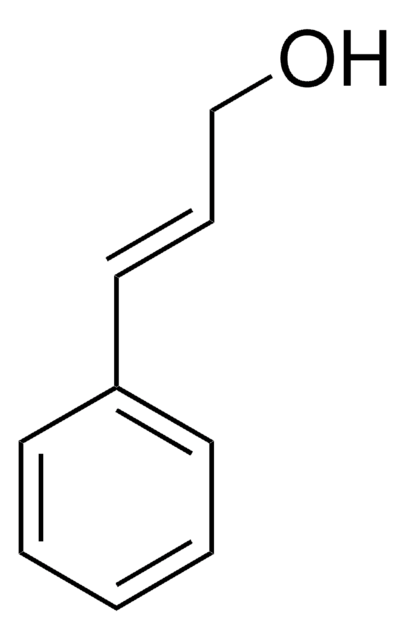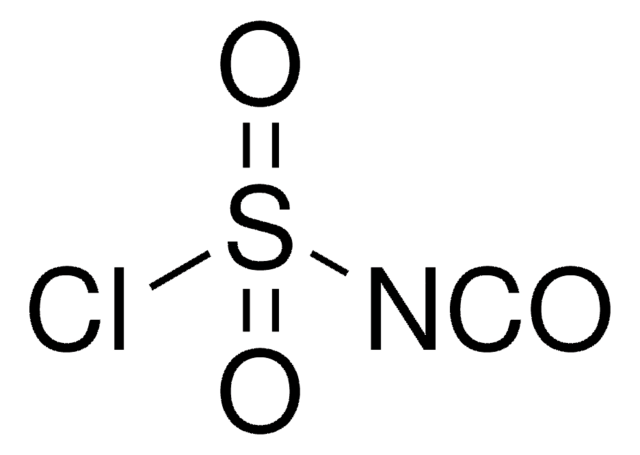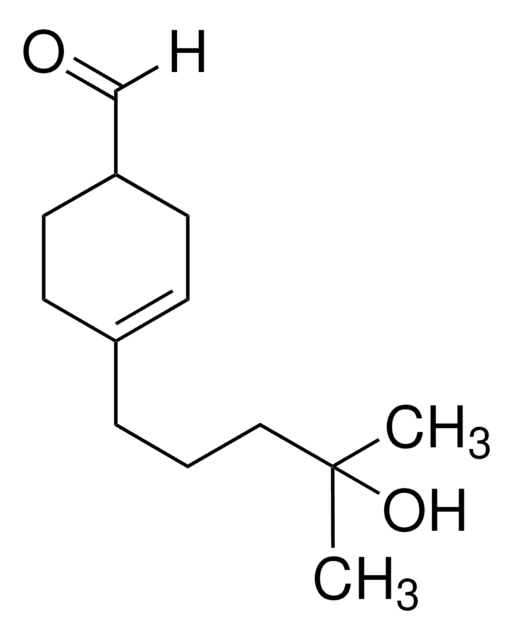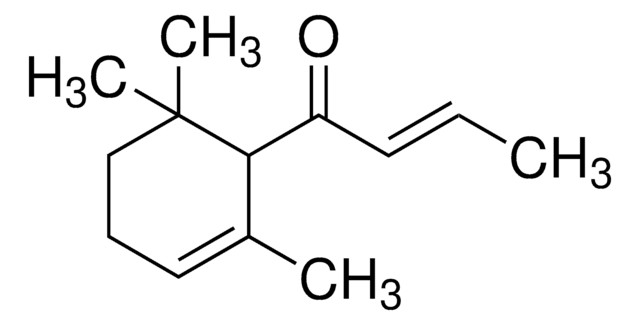277509
Methyl 2-octynoate
99%
Synonyme(s) :
Methyl heptine carbonate, NSC 72098
About This Item
Produits recommandés
Essai
99%
Forme
liquid
Indice de réfraction
n20/D 1.446 (lit.)
pb
217-220 °C (lit.)
Densité
0.92 g/mL at 25 °C (lit.)
Groupe fonctionnel
ester
Chaîne SMILES
CCCCCC#CC(=O)OC
InChI
1S/C9H14O2/c1-3-4-5-6-7-8-9(10)11-2/h3-6H2,1-2H3
Clé InChI
FRLZQXRXIKQFNS-UHFFFAOYSA-N
Vous recherchez des produits similaires ? Visite Guide de comparaison des produits
Description générale
Mention d'avertissement
Warning
Mentions de danger
Conseils de prudence
Classification des risques
Aquatic Acute 1 - Aquatic Chronic 3 - Skin Sens. 1A
Code de la classe de stockage
10 - Combustible liquids
Classe de danger pour l'eau (WGK)
WGK 2
Point d'éclair (°F)
192.2 °F - closed cup
Point d'éclair (°C)
89 °C - closed cup
Équipement de protection individuelle
Eyeshields, Faceshields, Gloves, type ABEK (EN14387) respirator filter
Faites votre choix parmi les versions les plus récentes :
Déjà en possession de ce produit ?
Retrouvez la documentation relative aux produits que vous avez récemment achetés dans la Bibliothèque de documents.
Notre équipe de scientifiques dispose d'une expérience dans tous les secteurs de la recherche, notamment en sciences de la vie, science des matériaux, synthèse chimique, chromatographie, analyse et dans de nombreux autres domaines..
Contacter notre Service technique